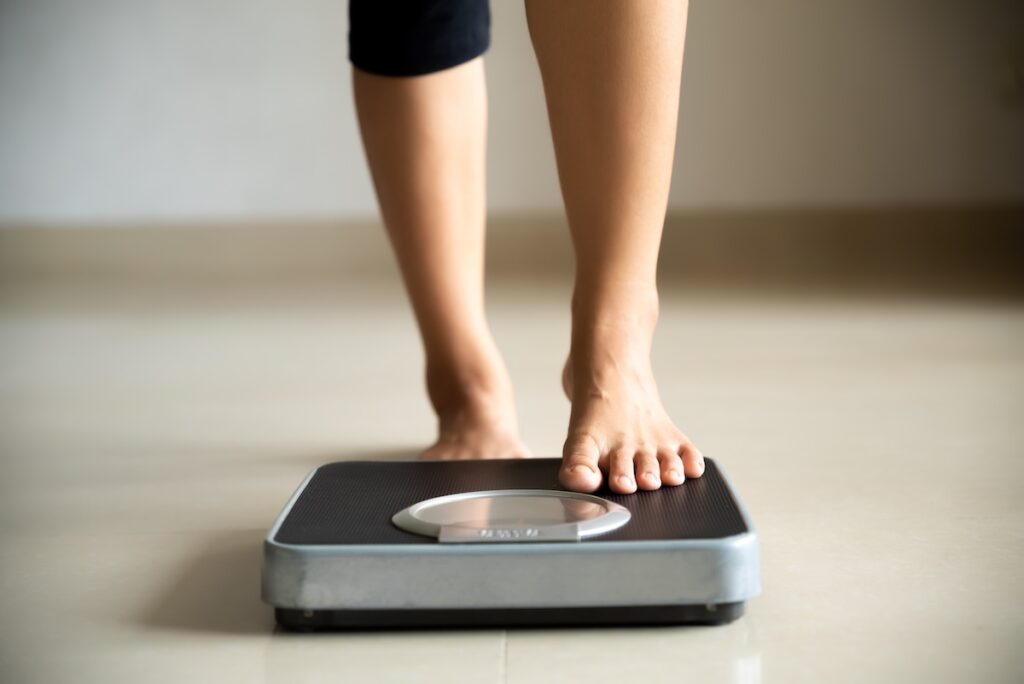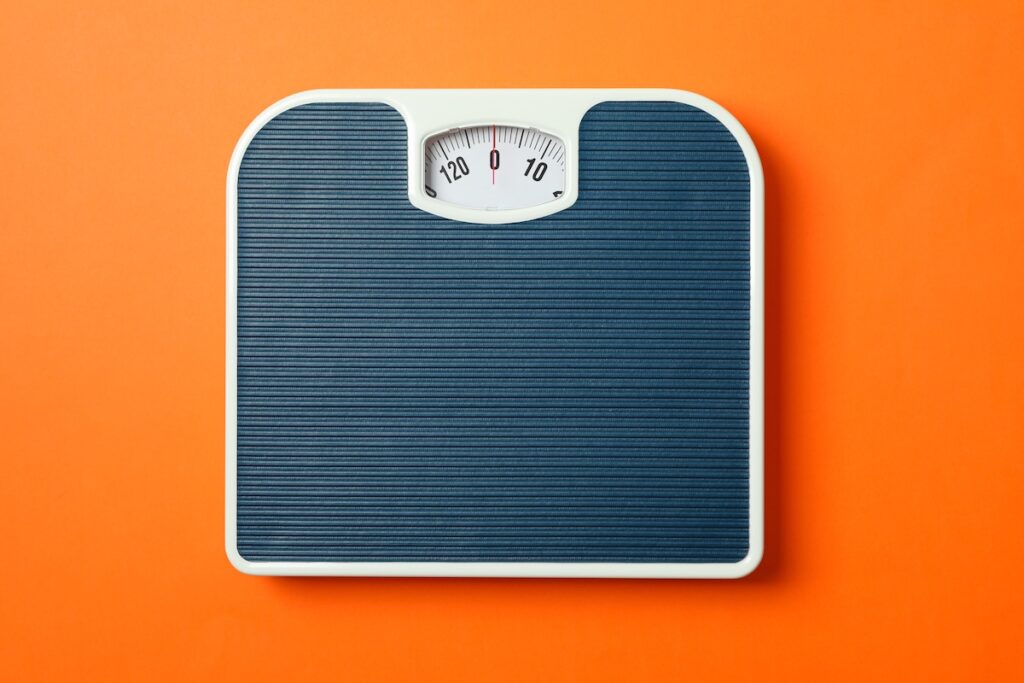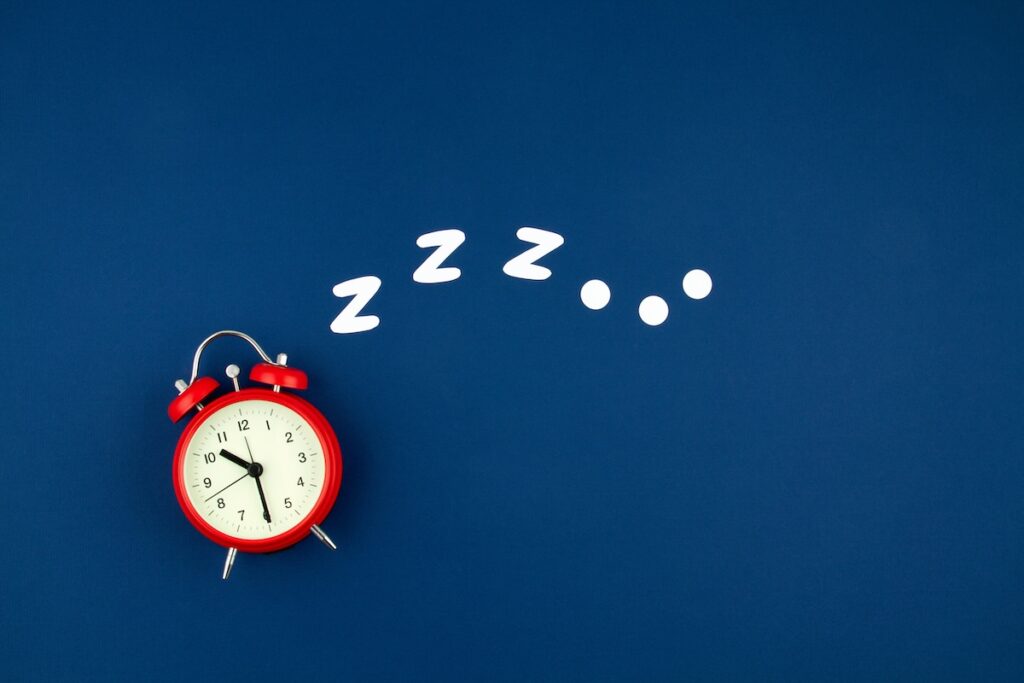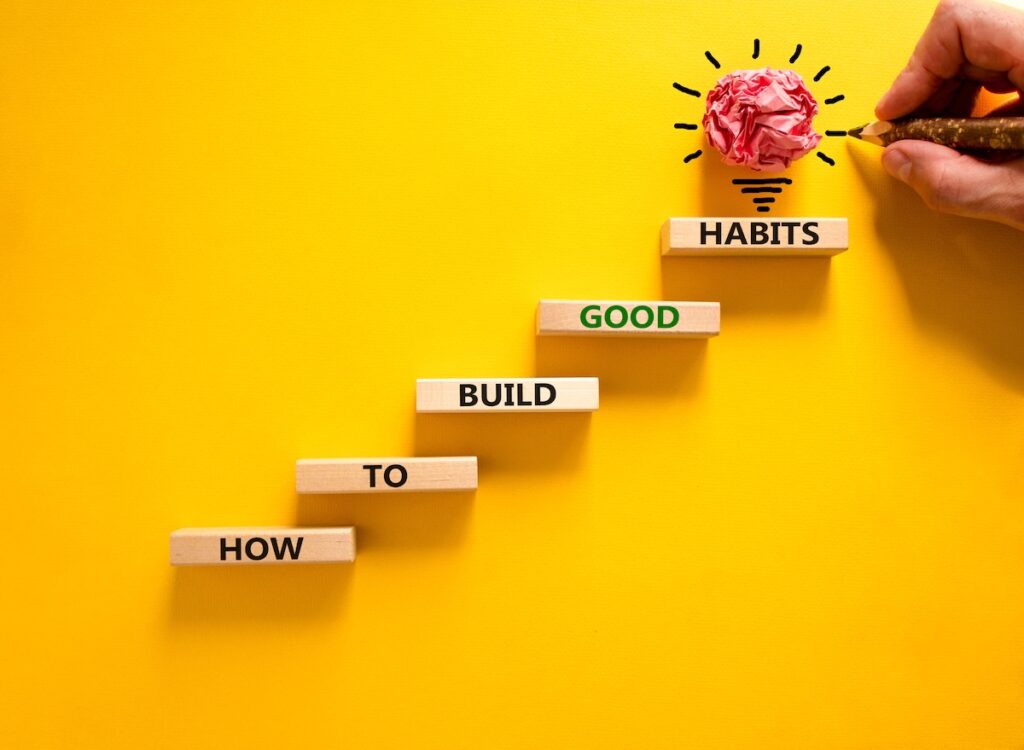
Hi, I’m James Breese. With over 20 years of coaching experience, I help people unlock their athletic potential and lead healthier, stronger lives.
In a world awash with fitness fads and conflicting opinions, WWS—Walk, Water, Sleep—stands out as a simple, science-backed strategy for building a healthier, longer life.
It’s not just another health trend; it’s the foundation for sustainable weight loss, improved energy, and long-term performance.
We developed the concept after trying to find a way to compare elite, high-performers with our weight loss clients who were new to exercise to establish a level playing field and common ground.
At Strength Matters, we now require the adoption of WWS, alongside the Triple Seven Rule, before any training or nutritional programme.
Why?
Because these habits underpin success in all areas of health and fitness, results are inconsistent and short-lived without this foundation.
Here’s the beauty of WWS: while we might all have different opinions on the best diets, exercise programmes, or training techniques, we can all agree that walking more, drinking more water, and sleeping better are non-negotiables for good health.
They’re universal truths, forming common ground for anyone striving to improve their health and longevity.
The WWS method revolves around three fundamental habits:
- Walking: Moving your body regularly to improve cardiovascular health and metabolic efficiency.
- Water: Staying hydrated to optimise energy levels, digestion, and cellular repair.
- Sleep: Prioritising rest to enhance recovery, balance hormones, and improve mental clarity.
The Triple Seven Rule makes it simple to remember and implement:
- Take at least 7,000 steps a day,
- Drink 7 glasses of water, and
- Get 7 hours of quality sleep every night.
Focusing on these three actions creates a ripple effect that strengthens your healthspan, enhances performance, and lays the groundwork for lasting change.
Key Takeaways
- Simplicity is Powerful: The WWS method—Walk, Water, Sleep—focuses on three simple, science-backed habits that form the foundation for better health, longevity, and weight loss.
- The Ripple Effect: Small, consistent actions like walking daily, staying hydrated, and prioritizing quality sleep create a positive feedback loop that enhances energy, mental clarity, and overall performance.
- Achievable for Everyone: WWS, grounded in the Triple Seven Rule (7,000 steps, 7 glasses of water, 7 hours of sleep), offers an accessible starting point for anyone looking to improve their health without complicated programs or extreme diets.
Table of Contents
Why WWS Matters More Than Ever
The goal is not to live longer; it’s to live better. Longevity without quality of life is pointless.
Peter Attia
Modern life is riddled with health challenges.
Sedentary lifestyles, chronic dehydration, and disrupted sleep patterns have become common, leading to weight gain, fatigue, and a shorter healthspan.
But WWS offers an antidote.
It’s a practical, science-backed way to counter these challenges and reclaim control over your health:
- Walking improves cardiovascular fitness, reduces stress, and boosts cognitive function.
- Water fuels your body, enhancing metabolism and preventing the hidden drain of dehydration.
- Sleep repairs and rejuvenates, providing the energy you need to thrive.
WWS isn’t just about weight loss; it’s about ensuring your healthspan matches your lifespan.
Focusing on these simple habits will improve your fitness and create a foundation for long-term health, resilience, and performance.
Let’s explore how WWS works and why it’s the cornerstone of a healthier, longer, high-performance life.
Walk: The Foundation for Health and Performance

Walking and Longevity
First move well, then move often.
Gray Cook
Walking is more than a daily habit—it’s the cornerstone of health, longevity, and performance.
Walking offers a simple yet transformative solution whether you aim to live longer, enhance your physical performance, manage your weight, or recover effectively.
At Strength Matters, we always start with walking.
Why? Because walking isn’t just about moving more—it’s the habit that kick-starts a cascade of positive changes throughout your life.
- Walk more, and your body naturally craves more water.
- Walk more, and you’ll sleep better.
- Walk more, and you’ll gain clarity of thought, making better nutrition, lifestyle, and overall health decisions.
These habits form the foundation for lasting health and performance. Here’s why:
Reduced Mortality Risk
Walking as little as four times weekly for 15 minutes lowers mortality risk by 40%, even when accounting for chronic conditions and lifestyle factors (Fortes et al., 2013). Consistent walking habits make longevity more attainable for everyone.
Extended Life Expectancy
Walking ≥1 hour daily is linked to longer life spans and lower lifetime medical costs than walking less than an hour daily (Nagai et al., 2011). Even moderate walking durations show measurable benefits.
Benefits for Retirees
Among retired men, walking more than 2 miles daily halved their mortality risk over 12 years compared to those walking less than 1 mile daily (Hakim et al., 1998). This highlights walking’s vital role in promoting health during later life stages.
The Neighbourhood Impact
Walkable neighbourhoods contribute to increased longevity by encouraging higher daily physical activity levels. Your environment is crucial in supporting active habits (Riggs & Gilderbloom, 2016).
Walking isn’t just exercise; it’s a life-extending habit that fuels your body, sharpens your mind, and creates a foundation for better health at any age.
James Breese
Research Spotlight
- Fortes et al. (2013): Walking four times weekly for 15 minutes reduces mortality by 40%.
- Nagai et al. (2011): Walking ≥1 hour daily extends life expectancy and reduces medical costs.
- Hakim et al. (1998): Retirees walking >2 miles daily cut mortality risk in half over 12 years.
- Zhao et al. (2015): Walking 1–2 hours daily significantly lowers all-cause mortality in older men.
- Riggs & Gilderbloom (2016): Walkable neighborhoods promote longevity through daily activity.
Walking—it’s a proven strategy for enhancing healthspan and extending lifespan. Incorporating it into your routine lays a powerful foundation for vitality and well-being at any age.
Walking and Performance

Exercise is the most powerful longevity drug we have, bar none.
Peter Attia
Walking isn’t just movement—it’s a performance enhancer with a scientific foundation.
Walking offers measurable benefits for athletes and everyday athletes, from boosting endurance to improving recovery.
Enhanced Endurance
Athletic walking has been shown to significantly improve endurance, increase haemoglobin levels, and reduce fatigue markers, such as blood urea peaks during resistance training.
These changes enhance physiological recovery and overall fitness, making walking an essential activity for athletes and those in training (Li & Fan, 2023).
Improved Cardiovascular Efficiency
Brisk walking delivers cardiovascular training, improving VO2 max, and helping with weight management. It also enhances joint flexibility, muscular endurance, and psychological well-being, making it a holistic activity for performance (Rippe et al., 1988).
Reduced Risk of Physical Disability
Regular walking increases gait speed and VO2 max in older adults, lowering the risk of physical disability and promoting long-term functional fitness (Wong et al., 2003).
Mental and Physical Synergy
Participating in walking groups amplifies the benefits of reducing blood pressure, improving aerobic performance, and boosting mental health by lowering depression scores (Hanson & Jones, 2015).
Walking isn’t just about getting from A to B; it’s a performance booster that improves endurance, cardiovascular health, and mental resilience for athletes and non-athletes alike.
James Breese
Research Spotlight
- Li & Fan (2023): Athletic walking improves endurance, haemoglobin levels, and recovery.
- Rippe et al. (1988): Brisk walking enhances cardiovascular health and weight management.
- Wong et al. (2003): Regular walking reduces disability risks and enhances physical function in older adults.
- Hanson & Jones (2015): Walking groups improve VO2 max, mental health, and blood pressure.
- Parkkari et al. (2000): Golf-course walking enhances aerobic performance and musculoskeletal fitness.
Walking is more than a fad—a strategy for ultimate performance and longevity.
Whether you’re an athlete or just beginning your fitness journey, walking is the key to moving smarter and performing better.
Walking and Weight Loss

Walking is a proven and accessible strategy for achieving and maintaining weight loss.
Whether taking your first steps toward a healthier lifestyle or aiming to break through a plateau, walking delivers measurable results backed by science.
And the best part? It’s something anyone can do anytime, anywhere.
Calories and Fat Loss
Walking burns calories efficiently, contributing to weight loss with mindful nutrition.
Research shows that walking 250–300 minutes weekly (35–45 minutes daily) supports steady weight loss and maintenance. For those aiming to avoid weight regain, walking 70–80 minutes daily provides additional benefits (Fogelholm, 2005).
Pairing walking with an energy-restricted diet accelerates fat loss and improves insulin sensitivity.
A study found that moderate walking (2.5 hours per week) was more effective than diet alone in promoting fat loss (Kleist et al., 2017).
Every step counts—literally. With each walk, you’re investing in a healthier, lighter future.
Weight Maintenance
Consistency is key to long-term weight management. Studies reveal that pedometer-based walking interventions result in modest weight loss (~1.27 kg), with longer programs delivering greater outcomes (Richardson et al., 2008).
Walking also reduces the risk of weight regain by fostering active habits that align with a healthy lifestyle (Fogelholm, 2005).
Regular walking prevents long-term weight gain, particularly for individuals with higher starting weights. Over 15 years, walking was strongly associated with better weight control (Gordon-Larsen et al., 2009).
When it comes to maintaining a healthy weight, consistency beats intensity. A little every day adds up to big results.
Post-Meal Benefits
Walking briskly after meals enhances weight loss more effectively than waiting an hour to walk. Post-meal walking also helps regulate blood sugar levels, preventing energy crashes and reducing cravings for high-calorie foods (Hijikata & Yamada, 2011).
You can transform your post-meal slump into an opportunity to take control of your health—one brisk walk at a time.
Walking isn’t just about burning calories—it’s a sustainable path to weight loss, better health, and long-term success.
James Breese
Research Spotlight
- Fogelholm (2005): Walking 35–45 minutes daily supports weight loss and prevents weight regain.
- Richardson et al. (2008): Pedometer-based walking programs result in modest weight loss, improving with duration.
- Yamanouchi et al. (1995): Combining walking and diet improves weight loss and insulin sensitivity.
- Hijikata & Yamada (2011): Brisk post-meal walking enhances weight loss and stabilizes blood sugar.
Walking is more than just movement; it’s a simple and effective tool for sustainable weight loss and better health.
Walking and Recovery

Walking isn’t just movement—it’s medicine.
Walking offers powerful recovery benefits, whether you’re an athlete striving for ultimate performance or someone recovering from physical or mental fatigue.
It reduces soreness, boosts circulation, and aids the body in repairing itself.
Accelerated Muscle Recovery
Walking plays a critical role in athletic recovery. It accelerates blood lactate removal, reducing delayed onset muscle soreness (DOMS) and improving readiness for the next workout (Timson, 1976).
Endurance athletes also benefit from active recovery walking, which enhances haemoglobin levels and reduces blood urea peaks, optimizing physiological markers for peak performance (Li & Fan, 2023).
Support for Post-Injury Healing
Walking is equally effective for injury recovery. Walking therapy improves motor control and sensory recovery, particularly in individuals with spinal cord injuries (Jones et al., 2014; Tsai et al., 2024).
Innovative approaches like exoskeleton-assisted walking have significantly improved neurological rehabilitation (Tsai et al., 2024).
Relief from Pain and Tension
Walking offers a gentle yet effective solution for those battling chronic back pain.
Techniques like backward walking improve the range of motion while decreasing impact forces, providing relief and enhancing mobility (Dufek et al., 2011).
Walking with body-weight support or electrical stimulation further re-establishes motor patterns, promoting neural recovery (Lindquist et al., 2007).
Walking is more than movement—it’s the simplest, most effective tool for recovery and resilience.
James Breese
Research Spotlight
- Timson (1976): Walking accelerates blood lactate removal and reduces DOMS.
- Li & Fan (2023): Active recovery walking improves haemoglobin levels and reduces blood urea peaks.
- Jones et al. (2014): Walking therapy enhances motor control and sensory recovery post-injury.
- Dufek et al. (2011): Backward walking alleviates low back pain and improves mobility.
Walking isn’t just for fitness—it’s a proven, effective tool for recovery, empowering your body to heal and thrive.
The Ripple Effect: Why We Start with Walking

Walking is the keystone habit that transforms everything.
The ripple effects of walking go far beyond the obvious. By moving more, you unlock a chain reaction of positive changes that amplify your physical, mental, and emotional well-being.
Walking encourages hydration, improves sleep quality, and sharpens decision-making—all crucial elements for building a foundation of lasting health and vitality.
Here’s how:
- Walk more, drink more water: Movement naturally drives thirst, improving hydration and cellular energy.
- Walk more, sleep better: Regular walking reduces stress and promotes deeper, more restorative sleep.
- Walk more, think more clearly: Better hydration and sleep lead to sharper focus and smarter choices about nutrition, lifestyle, and overall well-being.
Walking is the first domino, setting off a cascade of benefits that ripple outward, building a healthier, stronger, and more vibrant life.
When you start with walking, the changes ripple outward—unlocking better health, longevity, and performance.
– James Breese
Sarah’s Story: Proof That One Step Changes Everything

Sarah, a busy mother of three, felt stuck. Despite regular gym sessions and a balanced diet, her energy was low, her sleep was poor, and her progress had stalled.
Like many, she overlooked walking as a powerful tool for transformation.
At Strength Matters, we encouraged Sarah to make one small, actionable change: incorporate regular walking into her daily routine.
Research shows that walking, even in short durations, reduces stress, improves sleep quality, and enhances decision-making—critical components of sustained health and vitality (Fortes et al., 2013; Hanson & Jones, 2015).
I didn’t realize how such a simple habit—walking—could have such a profound impact on my energy and well-being.
—Sarah Mitchell, Strength Matters Client
Starting small, Sarah added short walks to her day—parking farther away, taking the stairs, and enjoying family hikes with her kids.
These modest adjustments triggered a ripple effect that transformed her health:
- Increased energy levels: Sarah felt re-energized as walking improved her cardiovascular fitness and stimulated mitochondrial function, aligning with findings that regular walking enhances endurance and metabolic efficiency (Rippe et al., 1988; Li & Fan, 2023).
- Improved hydration habits: Movement naturally increased Sarah’s thirst, leading her to drink more water—a direct example of how walking encourages better hydration (Thornton, 2011).
- Better sleep quality: Walking reduced Sarah’s stress and promoted deeper, more restorative sleep, consistent with research linking walking to improved sleep and recovery (Hanson & Jones, 2015).
- Healthier food choices: Sarah found it easier to make mindful eating decisions, as the combined effects of improved sleep and hydration sharpened her focus and reduced cravings—mirroring studies on walking’s influence on mental clarity and decision-making (Hijikata & Yamada, 2011).
Within weeks, Sarah broke through the weight plateau she had struggled with for months.
Walking became her keystone habit, sparking a ripple effect that improved her workouts, mental clarity, and overall balance in her busy life.
One year later, Sarah continues to prioritize walking. Her story is a testament to the power of small, consistent actions.
For Sarah, walking wasn’t just another habit—it was the missing link to unlocking a healthier, happier, and more vibrant life.
In just weeks, adding short walks to my day completely transformed my energy, sleep, and focus. Walking was the small change that made the biggest difference in my life.
—Sarah Mitchell, Strength Matters Client
Water: The Underrated Key to Metabolic Health

Hydration is the unsung hero of health and longevity.
Often overlooked, water fuels your body’s most critical processes—from protecting against age-related diseases to boosting daily vitality.
At Strength Matters, hydration is the second pillar of the WWS method, building on the momentum created by walking.
The two habits work synergistically: walking naturally encourages hydration, as increased physical activity heightens thirst.
These habits amplify each other, improving energy, focus, and recovery.
Hydration and Longevity

Hydration is more than quenching thirst—it’s a critical factor in extending lifespan, reducing chronic disease risks, and staying healthy.
At Strength Matters, we prioritise hydration as an essential pillar of the WWS method, recognising its profound impact on longevity.
Proper hydration optimises your body’s internal processes and protects against age-related diseases.
Reduced Risk of Degenerative Diseases
Chronic underhydration disrupts metabolism, increases inflammation, and heightens the risk of degenerative conditions such as dementia and heart failure.
Maintaining optimal hydration throughout life significantly lowers the likelihood of these age-related diseases (Allen et al., 2019).
Enhanced Mitochondrial and Metabolic Function
Adequate hydration supports mitochondrial health and metabolic efficiency. Studies suggest that increased hydration, mainly through angiotensin regulation, reduces risks of obesity, hypertension, and kidney disease—all factors directly influencing lifespan (Thornton, 2011).
Improved Cardiovascular and Kidney Health
Supplementing daily water intake improves kidney function, reduces blood pressure, and enhances overall metabolic processes.
These improvements are crucial for maintaining cardiovascular health and supporting long-term vitality (Nakamura et al., 2020).
Mitigated Disease Risks
Hydration is key in preventing conditions like kidney stones, colorectal cancer, and cardiovascular diseases.
By increasing water intake, individuals can reduce the prevalence of these chronic illnesses, indirectly boosting life expectancy (Horswill & Janas, 2011).
Critical for Aging Populations
Older adults are particularly vulnerable to the effects of dehydration, with inadequate hydration linked to higher morbidity and mortality rates.
Promoting hydration literacy and awareness can improve the quality of life, reduce hospitalisations, and extend longevity for ageing populations (Picetti et al., 2017).
Regardless of age, staying hydrated is a simple yet powerful step toward building resilience, extending your healthspan, and unlocking your body’s full potential.
Hydration isn’t just about drinking water—it’s the foundation for living longer and staying stronger.
James Breese
Research Spotlight
- Allen et al. (2019): Chronic underhydration promotes metabolic dysfunction, inflammation, and degenerative diseases.
- Thornton (2011): Hydration through angiotensin inhibition improves mitochondrial health and reduces chronic disease risks.
- Nakamura et al. (2020): Increased water intake enhances kidney function, metabolic efficiency, and blood pressure regulation.
- Horswill & Janas (2011): Proper hydration mitigates risks for kidney stones, cancer, and cardiovascular conditions.
- Picetti et al. (2017): Hydration is critical for reducing morbidity and mortality in older adults.
Hydration isn’t just about immediate health benefits—it’s a long-term investment in your future. By prioritising hydration daily, you’re setting the stage for a healthier, longer, and more fulfilling life.
Hydration and Performance

Hydration is the foundation of peak physical and mental performance.
Proper hydration is pivotal to the operation of your body and brain, from fueling your runs to sharpening your decision-making.
Whether you’re an elite athlete or a worker enduring a demanding workday, hydration is the key to staying sharp, strong, and resilient.
Optimised Endurance and Power Output
Proper hydration dramatically improves aerobic performance, cardiovascular efficiency, and thermoregulation.
Dehydration, conversely, can severely impair endurance, with even slight fluid deficits reducing time to exhaustion and power output (Cai & Fan, 2023; Nash, 2024).
Carbohydrate-electrolyte sports drinks have been shown to extend endurance, lower muscle soreness, and speed up recovery—making them superior to water alone during high-intensity activities (Nash, 2024; Singh, 2010).
Enhanced Recovery and Muscle Function
Hydration is critical in flushing out metabolic waste and reducing muscle soreness. Studies demonstrate that even partially rehydrating after exercise restores energy levels and improves recovery, especially under heat stress (McCartney et al., 2017).
Personalised hydration strategies, such as accounting for sweat rate and electrolyte losses, further optimize recovery, ensuring athletes are ready for their next challenge (Maughan & Shirreffs, 2010).
Sharper Cognitive Performance
Dehydration doesn’t just impact your body—it clouds your mind.
Even minor fluid deficits can disrupt decision-making and focus, especially in high-pressure situations.
Personalised hydration strategies keep your mind sharp and your actions decisive, helping you thrive in the moments that matter most. (Oppliger & Bartok, 2002).
Hydration in Demanding Environments
Staying hydrated is essential in hot or stressful environments. Proper hydration prevents heat stress, reduces fatigue, and maintains peak performance.
For athletes in extreme conditions, carbohydrate-electrolyte drinks prove most effective in maintaining energy and hydration balance (Singh, 2010).
Staying hydrated is essential for young athletes’ growth, safety, and success.
It minimises the risks of heat-related illness and ensures sustained physical output during prolonged activities (Bergeron, 2015).
I see athletes dehydrated all the time, struggling with energy and focus. Hydration is the simplest fix with the biggest impact.
James Breese
Research Spotlight
- Nash (2024): Carbohydrate-electrolyte drinks improve endurance, power output, and recovery.
- Cai & Fan (2023): Hydration enhances cardiovascular efficiency and aerobic endurance.
- Maughan & Shirreffs (2010): Personalized hydration strategies optimize high-intensity performance.
- McCartney et al. (2017): Rehydration improves continuous exercise performance, even under heat stress.
- Singh (2010): Hydration prevents heat stress and fatigue in hot conditions.
- Bergeron (2015): Proper hydration minimizes heat-related risks for youth athletes.
- Oppliger & Bartok (2002): Monitoring hydration ensures peak performance and health safety.
Hydration isn’t just a choice—it’s your foundation for success.
Hydration is essential for staying sharp, strong, and resilient in the gym, playing sports, or at work.
Hydration and Weight Loss

Hydration is one of the simplest yet most effective tools for weight management.
From reducing hunger to enhancing fat metabolism, drinking enough water supports sustainable weight loss, backed by science.
Appetite Regulation and Energy Intake
Drinking water before meals promotes a feeling of fullness, naturally curbing appetite and reducing caloric intake.
Research confirms that individuals who replace calorie-laden drinks with water consume fewer calories, leading to steady and sustainable weight loss (Stookey, 2010; Tate et al., 2012).
Fat Metabolism and Lipolysis
Proper hydration directly supports fat metabolism. Water enhances lipolysis, breaking down fat for energy, optimising metabolic efficiency and promoting fat loss.
Studies also show that staying well-hydrated reduces the risk factors for obesity and type 2 diabetes (Thornton, 2016).
Replacing Sugary and Diet Beverages
Substituting water for caloric or diet beverages reduces energy intake and improves insulin sensitivity, fasting glucose levels, and overall metabolic health.
These changes make water a powerful ally in weight-loss programs (Muckelbauer et al., 2013; Madjd et al., 2015).
Hydration’s Role in Weight Control
Inadequate hydration is linked to higher BMIs and greater odds of obesity. Increasing water intake can lead to modest yet impactful weight reductions, particularly when combined with diet or exercise.
Proper hydration amplifies these strategies, offering a simple, accessible approach to managing body weight (Chang et al., 2016).
Hydration is one of the easiest ways to support fat loss—yet it’s often overlooked. Start with water, and you’ll see the difference.
James Breese
Research Spotlight
- Thornton (2016): Increased hydration enhances fat metabolism and reduces obesity risk factors.
- Chang et al. (2016): Adults with inadequate hydration have higher BMIs and obesity rates.
- Tate et al. (2012): Replacing caloric beverages with water results in modest weight loss and reduced fasting glucose.
- Stookey (2010): Drinking water reduces energy intake and supports fat oxidation.
- Muckelbauer et al. (2013): Increased water consumption improves weight-loss outcomes in dieting individuals.
- Madjd et al. (2015): Substituting water for diet beverages leads to greater weight reduction and better insulin resistance.
Hydration isn’t just about staying refreshed—it’s a strategic step toward effective weight loss.
Every glass of water you drink is a step toward a leaner, healthier you.
Hydration and Recovery

Hydration is the cornerstone of effective recovery. It is critical for muscle repair, reducing inflammation, and restoring balance after physical exertion.
Hydration isn’t just about recovery—it’s a critical step in rebuilding strength and unlocking your body’s full potential.
Enhanced Muscle Recovery
Hydration is vital for muscle repair and strength. Studies show that deep-ocean mineral water outperforms standard sports drinks and spring water, significantly enhancing muscle recovery after intense exercise (Harris et al., 2019).
Rehydrating post-exercise with sodium-rich fluids promotes better fluid retention and accelerates recovery by restoring water and electrolyte balance (Maughan & Shirreffs, 1997).
Reduced Oxidative Stress
Dehydration increases oxidative stress, slowing recovery and impairing cellular repair. Proper rehydration reduces oxidative damage and enhances DNA repair, helping your body bounce back faster and stronger (Paik et al., 2009).
Personalised Recovery Strategies
Tailored hydration plans based on sweat rate and sodium loss optimise recovery outcomes. Athletes who follow individualised hydration strategies experience better heart rate recovery, improved neurocognitive function, and enhanced anaerobic performance (Ayotte & Corcoran, 2018).
Soreness and Fatigue Reduction
Pre-exercise hydration strategies also make a difference. Carbohydrate-electrolyte drinks consumed before physical activity reduce muscle soreness and fatigue and speed up recovery post-exercise (Nash, 2024).
Proper hydration isn’t just recovery—it’s rebuilding strength, reducing fatigue, and unlocking your full potential.
James Breese
Research Spotlight
- Harris et al. (2019): Deep-ocean mineral water enhances hydration and muscle recovery better than sports drinks or spring water.
- Nash (2024): Carbohydrate-electrolyte drinks reduce soreness and fatigue, improving recovery.
- Maughan & Shirreffs (1997): Sodium-enhanced beverages restore water and electrolyte balance.
- Paik et al. (2009): Rehydration reduces oxidative stress and DNA damage, accelerating recovery.
- Ayotte & Corcoran (2018): Individualised hydration strategies improve anaerobic power and heart rate recovery.
Every sip fuels your recovery, helping you recover stronger and ready to face your next challenge.
The Ripple Effect: Why Hydration Changes Everything

Hydration is the keystone habit that amplifies everything else.
Proper hydration has ripple effects that extend far beyond quenching thirst. Staying hydrated unlocks a cascade of benefits that elevate your physical performance, mental clarity, and overall well-being.
Here’s how:
- Drink more and think more clearly: Proper hydration sharpens your focus, helping you make smarter decisions about food, exercise, and life.
- Drink more and perform better: Hydration sustains energy, accelerates recovery, and boosts productivity, whether at the gym, work, or home.
- Drink more and eat better: Staying hydrated reduces the likelihood of mistaking thirst for hunger, leading to healthier food choices.
Hydration builds on the foundation set by walking, creating a domino effect that strengthens every aspect of your health, vitality, and performance.
Water is the simplest, most powerful catalyst for thinking, feeling, and performing your best.
– James Breese
Thomas’s Story: Proof That Hydration Sparks Change

A software developer in his late 30s, Thomas was no stranger to regular exercise and a balanced diet.
Yet, he constantly battled chronic fatigue and mental fog, relying on coffee and sugary snacks to power through his day.
Despite his efforts, his productivity lagged, and his progress felt stagnant.
At Strength Matters, we identified the missing piece: hydration.
Studies show that even mild dehydration impairs cognitive performance and increases fatigue, undermining energy levels and focus (Oppliger & Bartok, 2002).
Addressing this foundational need could unlock significant improvements in Thomas’s health and performance.
I never realised how much a simple habit like drinking water could boost my energy and focus. It changed everything for me.
—Thomas Davies, Strength Matters Client
We introduced a single habit: drinking seven glasses of water daily. The results were immediate and transformative, reflecting the ripple effects of proper hydration:
- Increased energy levels: Thomas avoided the dreaded afternoon slump as hydration enhanced his metabolic efficiency and cellular energy, aligning with research linking hydration to improved cardiovascular and mitochondrial function (Thornton, 2011; Nakamura et al., 2020).
- Sharper focus: By staying hydrated, Thomas experienced improved mental clarity, helping him complete demanding work projects—a direct outcome of hydration’s role in reducing cognitive fatigue and enhancing decision-making (Oppliger & Bartok, 2002).
- Healthier food choices: Thomas’s cravings for sugary snacks diminished, as staying hydrated prevented him from mistaking thirst for hunger. This mirrors findings that proper hydration supports appetite regulation and reduced caloric intake (Stookey, 2010; Tate et al., 2012).
- Enhanced recovery: Thomas noticed faster recovery from workouts and deeper, more restorative sleep, consistent with studies showing hydration’s role in reducing oxidative stress and supporting muscular repair (Paik et al., 2009).
For Thomas, hydration became the keystone habit that transformed his health.
A simple adjustment created a ripple effect that enhanced his energy, focus, and overall well-being.
Thomas’s story highlights the profound impact of a single habit.
Hydration isn’t just about quenching thirst—it’s about unlocking your body’s full potential, one glass at a time.
Simply drinking more water gave me the energy, focus, and recovery I’d been missing. Hydration turned out to be the game-changer I didn’t know I needed.
—Thomas Davies, Strength Matters Client
Sleep: The Essential Third Pillar of Health

Sleep and Longevity
Sleep is the foundation of a long and healthy life.
Your body’s ability to repair, regenerate, and maintain optimal function relies on quality sleep.
Consistent, restorative sleep enhances every aspect of your health, from balancing hormones to protecting against chronic diseases.
At Strength Matters, we believe sleep is more than rest—it’s your body’s most powerful recovery tool.
Sleep is the third pillar of the WWS method. It builds on the habits of walking and hydration to amplify longevity and vitality.
How Sleep Supports Longevity
Regulates Key Biological Functions
Optimal sleep (7–8 hours) reduces the risk of chronic diseases and supports metabolic and cardiovascular health.
Insufficient and excessive sleep are linked to poorer health outcomes, creating a delicate balance crucial for longevity (Orr, 2001; Zhang et al., 2021).
Enhances Cognitive and Emotional Health
Healthy sleep patterns, including stable circadian rhythms and slow-wave sleep, reduce cognitive decline and frailty in older adults.
Sleep helps you live longer and thrive as you age (Panagiotou et al., 2021; Sun et al., 2019).
Promotes Longevity-Friendly Lifestyles
In communities of exceptional longevity, such as Okinawa, quality sleep is part of a holistic lifestyle alongside regular physical activity and a balanced diet. These habits work synergistically to extend life expectancy (Taira et al., 2002).
Improves Overall Healthspan
Healthy sleep behaviours reduce the risk of premature ageing and extend your body’s ability to function at its best.
Sleep isn’t just about adding years to your life—it’s about adding life to your years (Sambou et al., 2021).
Sleep isn’t just about adding years to your life—it’s about adding life to your years.
James Breese
Research Spotlight
- Mazzotti et al. (2014): Regular sleep patterns and slow-wave sleep are linked to longevity in individuals aged 85–105.
- Orr (2001): Optimal sleep duration (7–8 hours) reduces morbidity and increases life expectancy.
- Taira et al. (2002): In Okinawa’s village of Ogimi, longevity, quality sleep, and active lifestyles contribute to long life spans.
- Zhang et al. (2021): Excessive sleep (≥10 hours) increases the risk of cognitive impairment in older adults.
- Sambou et al. (2021): Healthy sleep behaviours extend health span and improve longevity.
- Sun et al. (2019): Poor sleep quality correlates with higher frailty levels in the elderly.
- Panagiotou et al. (2021): Stable circadian rhythms and moderate activity enhance sleep quality and support longevity.
Sleep is more than a nightly recharge—it’s your body’s secret weapon for a longer, healthier life.
By prioritising quality rest, you unlock the full potential of your physical, mental, and emotional well-being.
Sleep and Performance

Unlocking Mental Clarity and Physical Recovery
Sleep is the ultimate performance enhancer. From sharpening cognitive function to accelerating physical recovery, quality sleep underpins your ability to perform at your best—whether on the field, in the gym, or during a busy workday.
Enhanced Athletic Performance
Athletes prioritising sleep experience measurable gains in speed, accuracy, and endurance.
Research shows that extending sleep duration significantly improves sprint times, shooting precision, and fatigue reduction in collegiate basketball players (Mah et al., 2011).
Sleep also supports technical and tactical decision-making, with longer interventions yielding the most significant performance benefits (Kirschen et al., 2018).
Faster Recovery and Reduced Injury Risk
Sleep deprivation doesn’t just impair performance—it delays recovery.
Poor sleep slows muscle repair, increases cortisol levels, and disrupts post-exercise recovery, leaving athletes more susceptible to injuries (Samuels, 2008).
Proper sleep hygiene is vital for high-performance athletes, ensuring faster recovery and reducing injury risks (Watson, 2017).
Circadian Rhythms and Consistency
Sleep isn’t just about quantity; timing matters, too. Circadian rhythm disruptions negatively affect physical and cognitive function. Scheduling sleep to align with one’s natural body clock enhances peak performance (Thun et al., 2015).
Cognitive Clarity and Decision-Making
Sleep is essential for sharpening mental focus and decision-making under pressure.
Chronic sleep deprivation impacts neurocognitive performance, reaction times, and the ability to execute tactical strategies effectively (Simpson et al., 2017).
Interventions to improve sleep quality, including melatonin and tryptophan supplementation, show promise in helping athletes regain mental and physical sharpness (Halson, 2014).
We’ve seen firsthand how prioritising sleep transforms our athletes—faster sprint times, sharper decision-making, and quicker recovery are just the beginning.
James Breese
Research Spotlight
- Mah et al. (2011): Extending sleep duration improves sprint times, shooting accuracy, and fatigue reduction in collegiate basketball players.
- Watson (2017): Adequate sleep reduces injury risk and enhances athletic recovery.
- Thun et al. (2015): Aligning sleep with circadian rhythms optimises physical and cognitive performance.
- Samuels (2008): Poor sleep quality impairs post-exercise recovery and increases injury susceptibility.
- Kirschen et al. (2018): Long-term sleep improvements enhance speed, technical skill, and tactical decision-making.
- Simpson et al. (2017): Sleep interventions boost endurance, neurocognitive performance, and recovery.
- Halson (2014): Nutritional aids like melatonin improve sleep quality and recovery in elite athletes.
By prioritising quality sleep, you unlock the clarity to make smarter decisions, the energy to push harder, and the resilience to recover faster.
Sleep isn’t just a recovery tool—it’s the foundation of high performance.
Sleep and Weight Management

The Missing Link to Appetite Control and Fat Loss
Sleep is the overlooked powerhouse of weight management.
While diet and exercise often take the spotlight, quality sleep plays a vital role in regulating hunger, metabolism, and the ability to sustain weight loss.
Appetite Regulation and Energy Balance
Sleep deprivation disrupts appetite-controlling hormones, increasing ghrelin (hunger hormone) and reducing leptin (satiety hormone).
This imbalance increases cravings and calorie intake, undermining dietary efforts (Spaeth, 2019; Schmid et al., 2008).
Studies show that even a single night of sleep deprivation can amplify hunger signals, increase caloric consumption, and make it harder to stay on track with weight loss goals (Schmid et al., 2008).
Improved Weight Loss Outcomes
Incorporating sleep management into weight-loss interventions boosts efficacy. Proper sleep supports metabolic health and enhances fat oxidation, helping the body burn fat more effectively (Nedeltcheva et al., 2010).
Adequate sleep improves fat loss outcomes while minimising muscle loss for individuals on calorie-restricted diets, making it an essential part of sustainable weight management (Hoddy et al., 2020).
Long-Term Weight Maintenance
The connection between sleep quality and weight loss doesn’t end after shedding pounds. Poor sleep is strongly linked to weight regain, as inadequate rest can increase snacking and disrupt metabolic balance (Yannakoulia et al., 2017).
By improving sleep duration and quality, individuals can better maintain their weight loss and avoid the yo-yo effect that often accompanies traditional weight-loss strategies (Logue et al., 2012).
The Synergy Between Sleep and Diet
Integrating sleep advice into weight management programs enhances results. Combining better sleep habits with dietary and exercise interventions amplifies metabolic and cardiometabolic benefits, supporting both short-term fat loss and long-term health (Hall, 2022; Hoddy et al., 2020).
We’ve observed remarkable transformations in clients who prioritise sleep—it stabilises cravings, boosts fat loss, and makes sustainable weight management achievable.
James Breese
Research Spotlight
- Spaeth (2019): Sleep deprivation disrupts appetite regulation, increasing caloric intake and weight gain.
- Schmid et al. (2008): A single night of poor sleep increases hunger and ghrelin levels.
- Nedeltcheva et al. (2010): Adequate sleep during calorie restriction enhances fat loss and reduces muscle loss.
- Yannakoulia et al. (2017): Poor sleep is associated with weight regain after initial weight loss.
- Hoddy et al. (2020): Sleep quality improvements enhance weight-loss outcomes and metabolic health.
- Hall (2022): Sleep interventions boost weight management efficacy when combined with diet and exercise.
Prioritising sleep isn’t just a bonus—it’s the foundation of effective weight management.
Ensuring quality rest unlocks your body’s ability to regulate hunger, burn fat efficiently, and maintain a healthier weight over time.
Sleep and Recovery

Sleep is the foundation of mental and physical health. Without it, the house collapses.
Andrew Huberman
The Essential Tool for Repair and Regeneration
Sleep is the ultimate recovery tool. It supports muscle repair, restores hormonal balance, and sharpens mental focus—all essential for bouncing back stronger after physical or mental exertion.
Muscle Recovery and Regeneration
Sleep is critical for healing exercise-induced muscle injuries. During deep sleep, the body releases growth hormones, accelerating tissue repair and controlling local inflammation.
Extending sleep duration has been shown to reduce pain sensitivity and enhance regeneration, speeding up recovery (Chennaoui et al., 2021; Yang et al., 2019).
Conversely, sleep deprivation impairs protein synthesis and slows muscle recovery, exacerbating the effects of high-intensity exercise (Yang et al., 2019).
Injury Prevention and Recovery Optimization
Athletes who prioritize sleep recover faster and experience fewer injuries. Poor sleep delays recovery and increases the risk of injury and illness, hindering performance and long-term health (Samuels, 2008; Costa et al., 2022).
Sleep hygiene practices such as consistent sleep schedules and strategic napping help maintain recovery and minimize injury risks, particularly for team athletes with demanding schedules (Fullagar et al., 2015).
Hormonal Balance and Recovery Efficiency
Sleep is vital in restoring hormonal balance, mainly through growth hormone secretion, critical for cellular repair and recovery.
Sleep deprivation disrupts these processes, reducing recovery efficiency and prolonged fatigue (Costa et al., 2022; Bonnar et al., 2018).
Cognitive and Metabolic Recovery
Recovery isn’t just physical—it’s mental.
Sleep quality directly influences cognitive processes like decision-making, memory retention, and focus. It also supports metabolic homeostasis, which is essential for energy restoration and overall recovery (Samuels, 2009; Pujalte & Benjamin, 2018).
We’ve seen athletes bounce back from injuries faster by prioritising sleep—it’s the recovery edge they didn’t know they needed.
James Breese
Research Spotlight
- Chennaoui et al. (2021): Sleep extension accelerates recovery from muscle injuries by enhancing inflammation control and tissue regeneration.
- Yang et al. (2019): Sleep deprivation impairs protein synthesis and slows recovery from high-intensity exercise.
- Samuels (2008): Poor sleep increases injury risk and delays post-exercise recovery.
- Fullagar et al. (2015): Napping and sleep extension improve recovery markers for team athletes.
- Costa et al. (2022): Sleep deprivation disrupts hormonal responses critical for recovery, such as growth hormone secretion.
- Samuels (2009): Sleep quality supports cognitive and metabolic recovery in high-performance athletes.
By prioritising sleep, you unlock your body’s full potential to heal and regenerate.
Whether recovering from a workout or everyday stress, quality rest is your most potent tool for bouncing back stronger.
The Ripple Effect: Sleep and Better Decisions

Sleep isn’t just rest—it’s the cornerstone habit that ties everything together.
Quality sleep unlocks a ripple effect that amplifies your physical, mental, and emotional well-being.
By prioritising rest, you can achieve better health, sharper thinking, and greater consistency in all areas of life.
Here’s how:
- Sleep better, decide smarter: Well-rested individuals are better equipped to make healthier food choices, avoid emotional eating, and stay on track with their goals.
- Sleep better and recover faster: Deep, restorative sleep enhances muscle repair and reduces fatigue, allowing you to effortlessly maintain your walking and hydration habits.
- Sleep better and perform stronger: Whether at work, in the gym, or during daily activities, quality sleep primes your body and mind to operate at peak performance.
Sleep completes the WWS method by building on walking and hydration. These habits create a foundation for lasting health, longevity, and optimal performance.
Sleep isn’t just the third step—it’s the glue that holds everything together.
– James Breese
Helen’s Story: Proof That Sleep Sparks Transformation

Helen, a 37-year-old HR manager and avid runner, thought she had everything figured out.
She walked regularly, stayed hydrated, and maintained a balanced diet. But no matter what she did, she struggled with low energy, irritability, and poor recovery from her workouts.
Despite her efforts, she often made impulsive food choices and skipped workouts due to fatigue.
At Strength Matters, we encouraged Helen to focus on sleep—a step she’d overlooked in her busy life.
Research shows insufficient sleep disrupts hormone regulation, leading to increased hunger, reduced satiety, and impaired recovery (Nedeltcheva et al., 2010; Samuels, 2008).
Addressing her sleep habits could be the keystone to breaking this cycle.
Once I prioritised sleep, everything changed. My energy returned, my workouts improved, and I finally felt in control of my health again.
—Helen Rendell, Strength Matters Client
Helen started prioritising quality rest by making small changes, setting a consistent bedtime, reducing screen time before bed, and creating a calming evening routine.
The results were undeniable, mirroring the ripple effects of quality sleep:
- Sharper focus: Helen found it easier to make healthier food choices and avoid late-night snacking, aligning with research showing that well-rested individuals have improved cognitive clarity and decision-making (Simpson et al., 2017).
- Enhanced recovery: Her body healed faster, making her morning runs and gym sessions more productive. Studies linking deep sleep to muscle repair and reduced inflammation support this result (Chennaoui et al., 2021).
- Boosted performance: Helen felt energised at work, completing complex projects with clarity and efficiency, thanks to the restorative mental benefits of quality sleep (Balkin et al., 2008).
- Improved consistency: By sleeping better, Helen had the energy and motivation to sustain her walking and hydration habits, reinforcing the WWS method’s interconnected foundation.
Within weeks, Helen described sleep as the missing link in her health journey. While walking and hydration had laid the groundwork, sleep transformed her progress and brought it all together.
For Helen, sleep wasn’t just an afterthought—it was the catalyst that tied her habits into a cohesive, life-changing system.
I never realised how much better life could feel with quality sleep. It gave me the energy, focus, and recovery I needed to transform my health and performance.
—Helen Rendell, Strength Matters Client
The Triple Seven Rule: Simplifying the Path to Better Health

The Triple Seven Rule provides a clear, research-backed starting point for improving health, longevity, and performance.
Its simplicity—walking 7,000 steps, drinking 7 glasses of water, and sleeping 7 hours daily—makes it achievable for everyone.
These scientifically grounded thresholds represent the minimum needed to unlock a cascade of positive changes.
What Is the Triple Seven Rule?
At its core, the Triple Seven Rule is the essence of the WWS Method, condensed into three actionable habits:
- Walk: Take at least 7,000 steps daily to improve cardiovascular health, metabolism, and mental clarity.
- Water: Drink at least 7 glasses daily to support hydration, energy levels, and decision-making.
- Sleep: Get at least 7 hours of quality sleep nightly to optimise recovery, balance hormones, and enhance focus.
Each habit works synergistically with the others, creating a ripple effect. For instance:
- Walking naturally stimulates thirst, encouraging hydration.
- Hydration fuels cellular recovery, improving the quality of sleep.
- Sleep restores energy and sharpens focus, supporting consistency in walking and hydration.
These habits are interconnected, forming the foundation for long-term health and performance.
Why 7,000 Steps, 7 Glasses, and 7 Hours?

Walking: Why 7,000 Steps?
Research consistently shows that walking between 7,000 and 10,000 steps daily delivers significant health benefits.
The 7,000-step threshold balances practicality with impact:
- Reduced Mortality Risk: Walking 7,000 steps daily lowers all-cause mortality by 50% (Paluch et al. (2021))
- Improved Heart Health: Walking strengthens the cardiovascular system, reducing cholesterol and enhancing circulation (Murtagh et al., 2015).
- Enhanced Mental Clarity: Walking reduces stress and promotes focus by lowering cortisol and releasing endorphins.
Meeting this baseline will initiate the ripple effect: walking drives hydration, supporting recovery and better sleep.
Water: Why 7 Glasses?

Hydration is essential for cellular health, metabolism, and decision-making. Aiming for 7 glasses daily (1.5–2 litres) ensures most people avoid chronic dehydration:
- Boosts Metabolism: Drinking water before meals curbs appetite and promotes fat oxidation (Stookey, 2010).
- Enhances Physical Performance: Proper hydration reduces fatigue and improves endurance (S. V. von Duvillard et al., 2004).
- Supports Cellular Function: Staying hydrated prevents cognitive fog and kidney stones (Secher & Ritz, 2012).
Proper hydration complements walking by improving circulation and aiding recovery while reducing nighttime discomforts like muscle cramps to enhance sleep quality.
Sleep: Why 7 Hours?

Sleep is the body’s master recovery tool, critical for physical and mental health. Seven hours represents the minimum threshold for optimal health:
- Extends Lifespan: Adults who sleep 7–8 hours nightly live longer and are less likely to develop chronic diseases (Stenholm et al., 2019).
- Supports Weight Management: Sleep balances hunger hormones, reducing cravings and overeating (Nedeltcheva et al., 2010).
- Improves Recovery: Sleep is when the body repairs tissues, consolidates memories and restores energy.
Insufficient sleep compromises cognitive and physical performance, while quality rest ensures the energy needed for walking and hydration habits.
Why WWS Is a Daily Foundation
The Triple Seven Rule is the cornerstone for weight loss, peak performance, and effective stress management.
It’s not just about ticking boxes—it’s a holistic system where each habit strengthens the others:
- Weight Loss: Walking burns calories, hydration curbs unnecessary snacking by regulating hunger cues, and quality sleep balances hormones like leptin and ghrelin, making sustainable weight loss achievable without extreme diets.
- Performance: Walking builds aerobic capacity and endurance, hydration accelerates recovery by reducing oxidative stress (Maughan & Shirreffs, 1997), and sleep restores energy and mental clarity, ensuring optimal physical and cognitive performance.
- Stress Management: Walking lowers cortisol levels, reducing the effects of chronic stress. Proper hydration stabilizes energy, preventing irritability and fatigue, while restorative sleep boosts emotional resilience and decision-making (Simpson et al., 2017).
These habits are deeply interconnected.
Walking encourages hydration by increasing thirst, hydration supports restful sleep by preventing dehydration-induced discomfort, and quality sleep amplifies energy and focus, making it easier to maintain the other habits.
Reinforcing the Ripple Effect with WWS

The Triple Seven Rule is more than a checklist—it’s a synergistic system:
- Walking Encourages Hydration: Movement increases thirst, encouraging water intake to fuel recovery and energy.
- Hydration Improves Sleep: Staying hydrated reduces nighttime disruptions, like cramps, enhancing sleep quality.
- Sleep Amplifies Focus: Restful sleep restores energy and decision-making abilities, making it easier to maintain walking and hydration habits.
For example, research shows that hydration improves cognitive clarity (Popkin et al., 2010), while sleep enhances muscle recovery and reduces fatigue (Chennaoui et al., 2021).
These interconnected benefits create a powerful feedback loop that builds resilience and health over time.
Beyond the Minimum: Building Momentum
The Triple Seven Rule is just the beginning. As these habits become second nature, they naturally expand:
- Walking More: What starts as 7,000 steps often evolve into recreational hikes, active commutes, or joining a walking group, enhancing cardiovascular fitness and mental health.
- Hydrating More Effectively: As hydration becomes routine, you might refine your strategy by increasing your intake of electrolytes during workouts or in hot weather.
- Improving Sleep Quality: Consistent routines can enhance sleep quality through habits like winding down earlier, reducing screen time, or practising mindfulness.
These gradual enhancements amplify the ripple effect, turning foundational habits into lifelong pillars of health.
The Triple Seven Rule: A Foundation of Health for Life

The best exercise program in the world is the one you stick with.
Gray Cook
The Triple Seven Rule simplifies the path to better health, breaking it into manageable daily actions.
- Take your first 7,000 steps.
- Pour your first glass of water.
- Set your alarm for 7 hours of sleep.
Small, consistent actions lead to significant, lasting results. The Triple Seven Rule is the starting point for a healthier, longer, and more vibrant life.
Take a moment today to reflect on your habits.
Are you moving enough? Are you staying hydrated? Are you prioritising sleep?
Pick one habit to focus on right now—taking a walk, grabbing a glass of water, or setting your bedtime—and start your journey toward better health today.
Better health is just a few simple habits away.
Practical Tips for Incorporating WWS into Daily Life
Habits are the compound interest of self-improvement.
James Clear
The WWS Method—Walk, Water, Sleep—is built on the idea that small, consistent actions lead to lasting health.
Here’s how to turn these habits into an effortless part of your daily routine, supported by research and actionable advice.
Walking: Start Small and Stay Consistent

Walking: Start Small and Stay Consistent
- Sneaking in Steps: Use everyday moments—like pacing during phone calls or taking the stairs—to reach your step goal. These small actions compound into meaningful results over time (Bird & Rieker, 2014).
- Gradual Increases: Begin with 5,000 daily steps, increasing by 500 weekly. Small, progressive goals improve adherence and boost physical and mental well-being (Nevins et al., 2018). Walking more also primes your body for hydration and restful sleep.
- Purposeful Walking: Add post-meal walks to stabilize blood sugar and promote digestion. These walks prepare your body for better recovery and sleep by reducing stress (Duvall & De Young, 2013).
Hydration: Make Water Your Default Choice

- Accessible Water: Carry a water bottle as a visual reminder. Research shows that this simple cue averages daily water intake by 16 ounces (Nevins et al., 2018).
- Morning and Evening Rituals: Kick-start your day with water to rehydrate after sleep, and end it with a glass to support kidney health and blood pressure regulation overnight (Nakamura et al., 2020). Proper hydration also reduces nighttime disruptions, improving sleep quality.
- Replace Sugary Drinks: Substituting water for one sugary beverage daily can significantly lower calorie intake, aiding weight management (Wong et al., 2015). Better hydration also reduces mental fog, making it easier to sustain other healthy habits.
Sleep: Prioritise Quality Rest

- Consistent Routines: Going to bed and waking up at the same time enhances recovery, optimizes hormone balance, and improves mental clarity (Cherian, 2019). Quality sleep gives you the energy to maintain your walking and hydration habits.
- Create a Restful Environment: To foster restorative sleep, use blackout curtains, reduce screen exposure, and lower the room temperature (Nédélec et al., 2015). This will improve your focus and resilience for the next day.
- Unwind Effectively: Replace screens with calming activities like meditation or reading to ease into sleep. This ensures deeper rest and prepares your body for the next day’s activities (Bender & Lambing, 2023).
Why Practical Tips Work
Practical application bridges the gap between knowing what to do and doing it.
At Strength Matters, we empower clients to integrate evidence-based strategies into real life, turning them into sustainable habits.
Each WWS habit supports the others:
- Walking drives hydration by increasing thirst.
- Hydration improves sleep by reducing nighttime disruptions.
- Sleep amplifies energy and focus, ensuring you maintain walking and hydration habits.
These small, manageable actions create a ripple effect that builds momentum over time.
Start with one step, one glass, or one early night—and let the WWS Method transform your health.
Case Study: Gary’s Journey to Playing Stronger and Living Better

Gary, a 65-year-old retiree, wanted to regain his fitness to enjoy tennis matches with friends and keep up with his energetic grandkids.
After years of a sedentary lifestyle, Gary struggled with stamina, carried an extra 20 pounds, and felt frustrated with his declining performance.
We introduced Gary to the Triple Seven Rule at Strength Matters, the foundation for rebuilding his health and reclaiming his vitality.
Walking: A Small Start with Big Rewards
Gary began with a manageable goal of 5,000 steps per day, gradually increasing by 500 weekly until he consistently reached 7,000 steps daily after a month.
He incorporated walking into his post-meal routine, taking a brisk 10-minute stroll after breakfast and dinner.
Adding short walks after meals was a game-changer—it gave me energy for tennis and time to reset my day.
—Gary Bennett, Strength Matters Client
These purposeful walks stabilised his blood sugar levels, boosted his recovery, and left him feeling energised for his tennis matches.
Hydration: From Sugary Drinks to Sustained Energy
Gary’s first milestone was replacing his two daily sugary sodas with water. Carrying a water bottle became a simple but powerful habit that helped him consistently reach 7 glasses of water daily.
Within a week, Gary noticed fewer energy slumps and improved focus on the tennis court. The increased hydration also enhanced his recovery, reducing soreness after matches and long walks.
Sleep: Restoring Recovery and Resilience
To support his newfound activity, Gary developed a consistent bedtime routine. He swapped late-night TV for light stretching and set a regular bedtime to ensure he got 7 hours of sleep every night.
The results were transformative: Gary woke up feeling rested, which gave him the energy to maintain his walking habit and stay active with his grandkids.
His recovery after tennis matches also improved significantly, allowing him to play more often without feeling drained.
The Ripple Effect: Interconnected Habits, Life-Changing Results

Gary’s commitment to walking encouraged hydration, improving his sleep quality. Better sleep restored his energy and mental clarity, making it easier to stay consistent with his walking and water intake.
The interconnected nature of these habits created a powerful ripple effect that touched every part of his life:
- Improved Performance: Gary’s stamina on the tennis court increased, and he could now complete matches without feeling winded.
- Steady Weight Loss: Gary lost 12 pounds over three months, making movement easier and more enjoyable.
- Meaningful Moments: Gary now had the energy to chase his grandkids during tag games and teach them how to play tennis—a joy he hadn’t experienced in years.
For Gary, the Triple Seven Rule wasn’t just about fitness but about reclaiming his life.
By starting small with achievable steps, Gary built momentum that transformed his health, enhanced his performance, and deepened his connection with his loved ones.
His journey proves that it’s never too late to take charge of your health and unlock the benefits of small, consistent actions.
Thanks to the Triple Seven Rule, I’ve regained my energy and stamina—not just for tennis, but for making memories with my grandkids. It’s never too late to feel this good again.
—Gary Bennett, Strength Matters Client
Conclusion: A Simple Path to a Healthier Future

Gary’s journey reminds us that transformation doesn’t come from dramatic overhauls—it starts with small, consistent actions that build momentum over time.
The Triple Seven Rule—7,000 steps, 7 glasses of water, and 7 hours of quality sleep—offers a science-backed framework for improving health, performance, and longevity.
But it’s more than just numbers; it’s a path to rediscovering energy, focus, and joy in everyday life.
The Psychological Power of Progress
Research shows that achieving small milestones fosters a sense of accomplishment, reinforces motivation, and makes it easier to stay consistent.
Gary discovered that the simple act of hitting a daily step goal or swapping a soda for water can spark a ripple effect, leading to bigger victories like weight loss, improved performance, and deeper connections with loved ones.
Every step you take, every glass of water you drink, and every extra hour of sleep you prioritise build the foundation for lasting health and resilience.
Start small. Take a walk after your next meal, pour yourself a glass of water, and set a bedtime to ensure you get the rest you need.
“We are what we repeatedly do. Excellence, then, is not an act, but a habit.”
– Aristotle
Let WWS be your act of excellence—one habit, one day at a time.
FAQ
What Is the WWS Method and How Does It Work?
The WWS Method stands for Walk, Water, Sleep—a simple, science-backed approach to better health. It focuses on three daily habits: walking regularly, drinking enough water, and prioritising quality sleep. These habits work together to improve energy, mental clarity, and physical performance. Walking boosts cardiovascular health and stimulates hydration. Drinking water enhances digestion, recovery, and cognitive function. Sleep restores the body, balances hormones, and supports overall well-being. The WWS Method is easy to adopt and provides the foundation for long-term health and vitality.
How Does the WWS Method Support Long-Term Health and Performance?
The WWS Method creates a ripple effect that supports both health and performance. Walking improves endurance, reduces stress, and primes the body for better hydration and sleep. Hydration fuels energy and recovery while preventing fatigue and mental fog. Quality sleep amplifies physical recovery, sharpens focus, and ensures consistent energy. Together, these habits reinforce each other, building resilience and enhancing performance. Whether you’re looking to lose weight, improve your fitness, or boost mental clarity, the WWS Method lays the groundwork for lasting success.
Why Is the WWS Method a Game-Changer for Sustainable Weight-Loss?
The WWS Method offers an approachable solution for weight loss by focusing on habits that are easy to maintain. Walking burns calories, boosts metabolism, and reduces stress. Drinking water curbs cravings, regulates appetite, and supports fat metabolism. Sleep balances hunger hormones, helping you avoid overeating and emotional eating. Unlike fad diets or extreme exercise routines, the WWS Method integrates seamlessly into daily life, making it sustainable for the long term. It encourages gradual progress, ensuring results that last.
What Is the Triple Seven Rule and How Does It Improve Health?
The Triple Seven Rule is the heart of the WWS Method: walk 7,000 steps, drink 7 glasses of water, and sleep 7 hours daily. These simple targets are scientifically proven to enhance health. Walking boosts cardiovascular fitness and lowers mortality risk. Drinking water supports hydration, energy levels, and digestion. Sleep restores the body, improves recovery, and sharpens mental focus. By hitting these daily milestones, you create a ripple effect that transforms your overall health and well-being.
How Can Walking, Water, and Sleep Transform Your Lifestyle?
Walking, water, and sleep are foundational habits that enhance every aspect of life. Regular walking reduces stress, strengthens your heart, and keeps your body active. Staying hydrated improves energy, mental clarity, and digestion, while also preventing common health issues like fatigue and dehydration. Quality sleep restores your body and mind, boosting performance and mood. Together, these habits create a healthier, more balanced lifestyle. They’re simple yet transformative, proving that small changes can lead to big results.
Why Is the Triple Seven Rule Effective for Weight Loss and Performance?
The Triple Seven Rule is effective because it focuses on habits that drive real results. Walking burns calories, improves endurance, and reduces stress, which helps with weight management. Hydration supports fat metabolism and curbs cravings, making healthier eating choices easier. Sleep balances hunger hormones, prevents overeating, and enhances recovery after exercise. Together, these habits form a comprehensive approach to both weight loss and performance. The simplicity of the Triple Seven Rule makes it achievable, sustainable, and impactful.
Does Walking Improve Longevity?
Yes, walking significantly improves longevity. Research shows that walking at least 7,000 steps daily reduces the risk of early death by 50%. It strengthens the heart, boosts circulation, and enhances mental health by lowering stress. Walking also supports better sleep and hydration, creating a ripple effect that promotes a healthier and longer life.
How Much Should I Walk a Day to Lose Weight?
To lose weight, aim for 7,000–10,000 steps daily. Walking 35–45 minutes daily burns calories and improves fat metabolism. Pairing walking with mindful eating accelerates weight loss while improving cardiovascular health and reducing cravings.
Does Drinking Water Improve Longevity?
Drinking enough water is essential for longevity. Proper hydration supports cellular health, prevents chronic diseases like kidney stones and heart issues, and improves metabolism. Staying hydrated also reduces inflammation, a key factor in age-related illnesses.
How Much Water Should I Drink Daily for Weight Loss?
Drinking at least 7 glasses of water daily supports weight loss by curbing hunger and boosting metabolism. Drinking water before meals reduces calorie intake and aids fat oxidation, making it an effective and simple strategy for shedding pounds.
Can Drinking Water Boost Energy Levels and Focus?
Yes, water is critical for energy and focus. Dehydration, even mild, leads to fatigue and mental fog. Staying hydrated improves blood flow to the brain, sharpens cognitive performance, and sustains energy throughout the day.
Does Sleeping More Improve Longevity?
Sleeping 7–8 hours a night improves longevity by supporting hormonal balance, reducing stress, and enhancing recovery. Quality sleep lowers the risk of chronic diseases like diabetes and heart issues while keeping the mind and body resilient as you age.
How Many Hours of Sleep Do You Need for Weight Loss?
Aim for at least 7 hours of sleep nightly for effective weight loss. Sleep regulates hunger hormones, reducing cravings and overeating. It also helps your body burn fat more efficiently during calorie restriction, making it a key factor in sustainable weight management.
Can Quality Sleep Enhance Physical Performance?
Absolutely. Quality sleep restores energy, repairs muscles, and sharpens focus, which are essential for athletic and daily performance. Well-rested individuals have better endurance, reaction times, and decision-making abilities.
How Does Sleep Help with Mental Clarity and Decision-Making?
Sleep clears the brain of toxins, improving focus and decision-making. Deep sleep strengthens memory and problem-solving skills, helping you tackle complex tasks with confidence and precision.
Why Is Consistent Sleep Important for Recovery?
Consistent sleep schedules improve recovery by promoting muscle repair and reducing inflammation. A restful night allows your body to heal effectively, ensuring you’re ready to perform at your best the next day.

